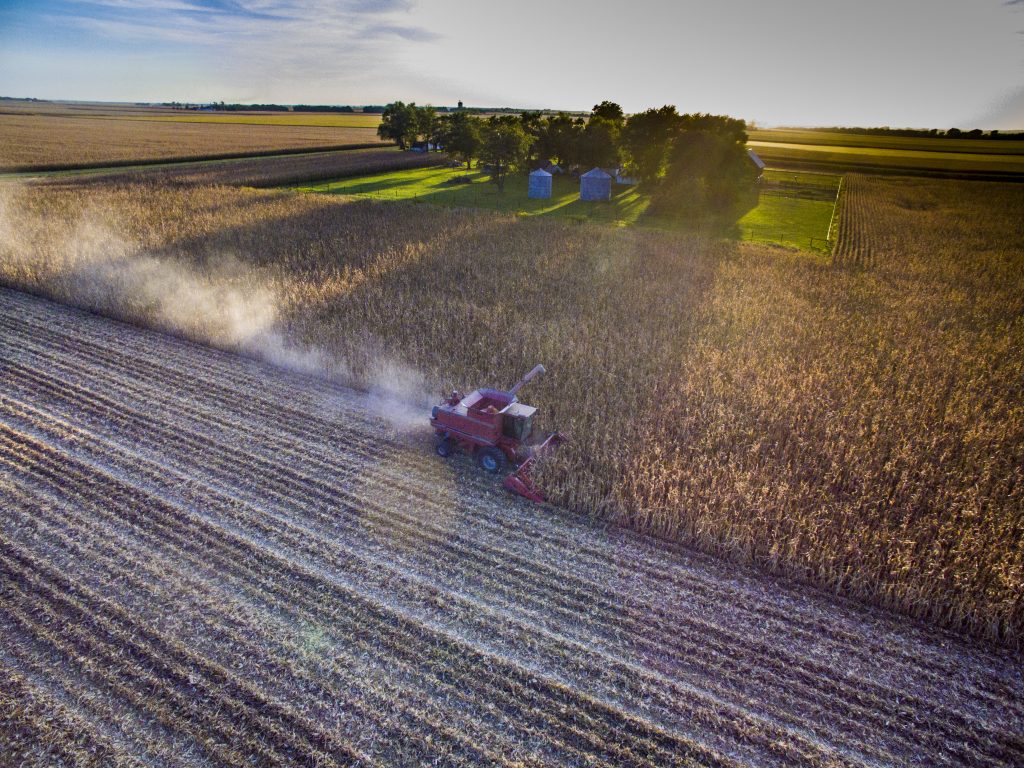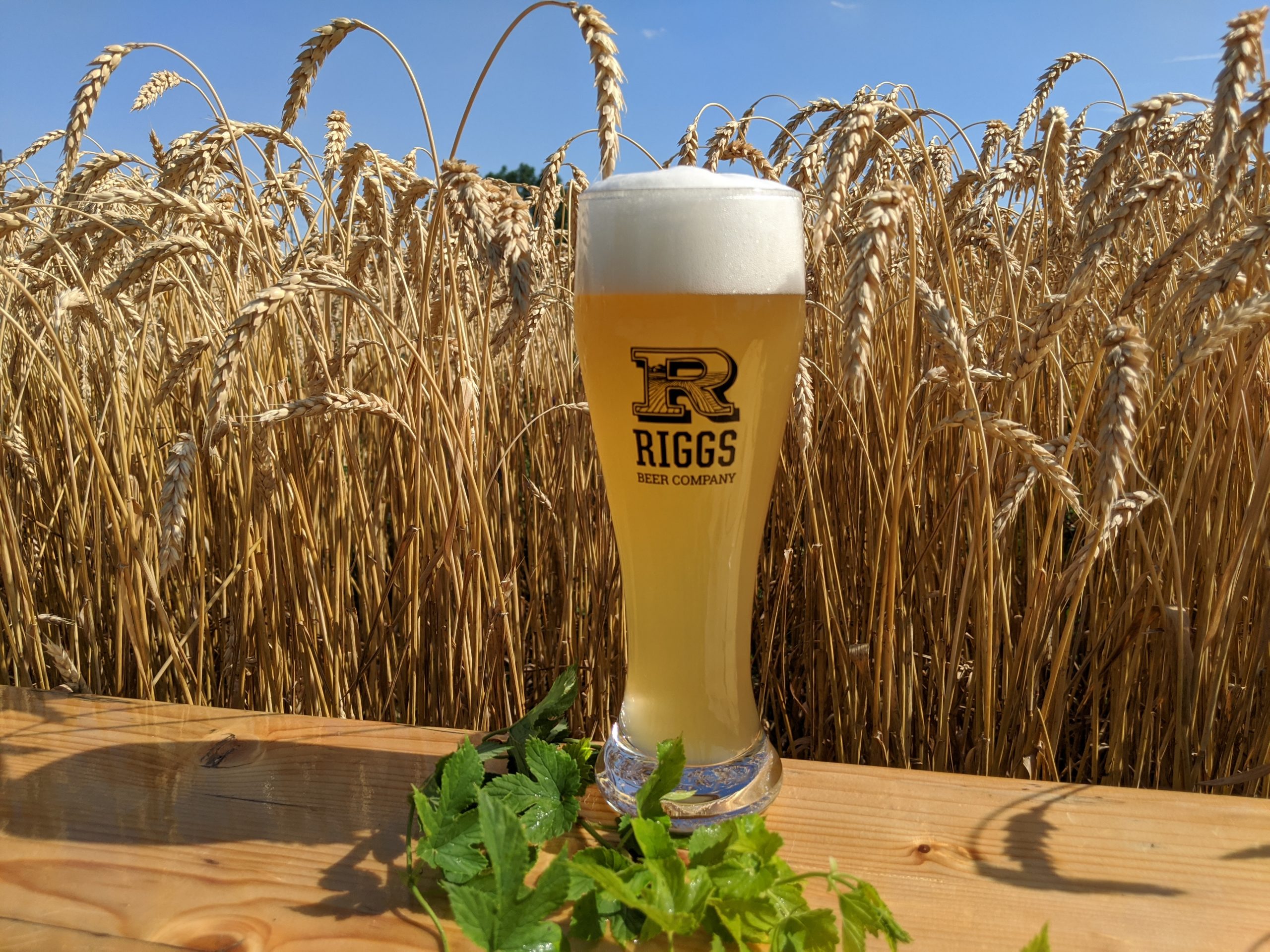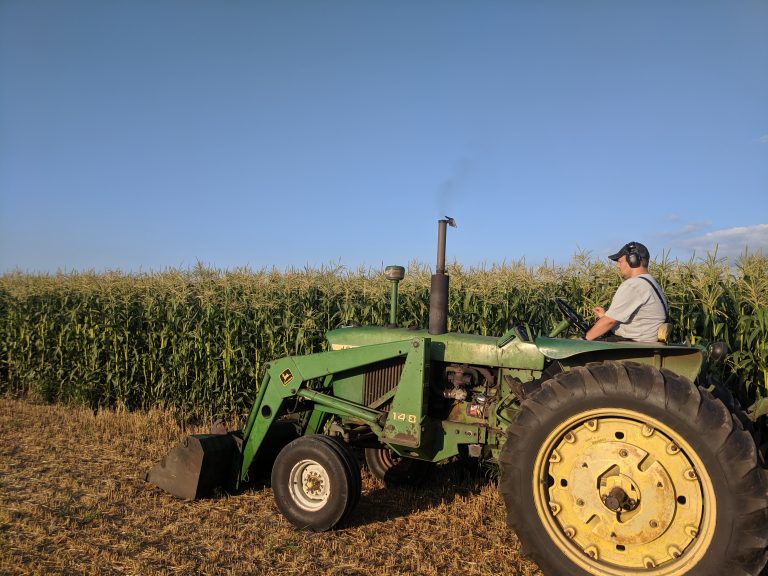At a time when consumers are increasingly concerned about the environmental impact of their choices, many beer enthusiasts find themselves wondering: How sustainable is my favorite brew? At Riggs Beer Company, we’ve been asking ourselves how to grow from field to can long before we poured our first pint.
As fifth-generation farmers turned brewers, we bring a unique perspective to the craft beer industry. Our journey from tending 300 acres of family farmland to operating a thriving brewery has given us invaluable insights into the entire beer production process – from soil to sip. This field to can approach has allowed us to implement sustainable practices at every step, creating beers that not only taste great but also contribute to a healthier planet.
In this article, we’ll take you on a journey through our fields and fermenters, showing you how we’re revolutionizing sustainable brewing. You’ll discover our innovative farming techniques, our collaboration with the University of Illinois, and how these efforts translate into the beer in your glass. By the end, you’ll have a new appreciation for what goes into every can of Riggs beer, and how your choices as a consumer can drive positive change in agriculture and brewing.
Field to Can: Farming for the Future
Our story begins in the southeast corner of Champaign County, where our family has been farming for five generations. We knew that to keep our 300 acres in family production, we needed to do something different. That’s when we had the idea: What if we could grow specialty crops, cut out the middleman, and bring our product directly to the consumer?
This concept of vertical integration became the foundation of Riggs Beer Company. Today, we proudly use thousands of pounds of our locally grown and malted grain each month to brew our beers. But we’re not just growing ingredients – we’re growing them sustainably.
One of our key initiatives is reducing nitrogen use in our fields. We’ve been experimenting with planting red clover, which fixes nitrogen in the soil naturally. “We’re finding that the amount of nitrogen that red clover fixes in the soil is much, much greater than soybean stubble,” we’ve observed. This not only reduces our reliance on synthetic fertilizers but also improves soil health.
We’re also advocates for winter wheat as a way to “wade into the pool of regenerative agriculture.” Winter wheat acts as a cover crop, preventing soil erosion and nutrient runoff during the off-season, while also providing an additional cash crop for farmers.
Field to Can: Collaborating for Innovation
Our commitment to sustainability has led to a fruitful partnership with the University of Illinois. As a land grant college, the university shares our passion for advancing agriculture and business in our community.
We’ve collaborated with the university on several fronts:
- Breeding Programs: We provide input on desirable characteristics for brewing grains, and the university uses our land for demo plots. The low-oil brewing corn we use is a product of the U of I’s breeding program.
- Food Science Department: We work with the fermentation science course, brewing small batches with students and utilizing the university’s lab analysis capabilities.
- Sustainable Practices Research: We’re constantly experimenting with sustainable farming techniques, using our fields as a real-world laboratory.
Empowering Consumers
We believe that consumers hold the key to driving sustainable practices in agriculture and brewing. “If the consumer were to shift their behavior and say, ‘Hey, I want to consume products that were grown more sustainably,’ then overnight, 99% of acres in the entire United States would shift to that type of production,” we explain.
That’s why we’re excited about programs like STAR (Saving Tomorrow’s Agriculture Resources), started by the Soil and Water Conservation District in Champaign County. This program rewards farmers for implementing sustainable practices and provides an easy-to-understand rating system for consumers.
The Riggs Difference
At Riggs Beer Company, sustainability isn’t just a buzzword – it’s ingrained in everything we do. From our large on-site solar array to our experimental farming practices, we’re constantly looking for ways to reduce our environmental impact while producing high-quality, flavorful beers.
When you enjoy a Riggs beer, you’re not just tasting the result of careful brewing – you’re tasting the product of generations of farming knowledge, innovative sustainable practices, and a deep commitment to our land and community.
We invite you to visit our taproom and beer garden, where you can see our brewing process in action and even glimpse the very fields where we grow our ingredients. Come taste the difference that sustainable, locally-grown beer can make.



